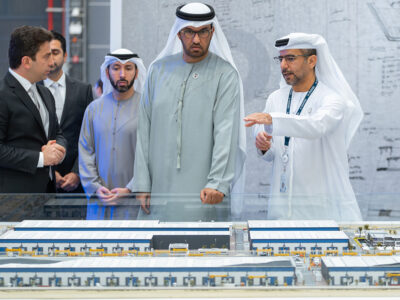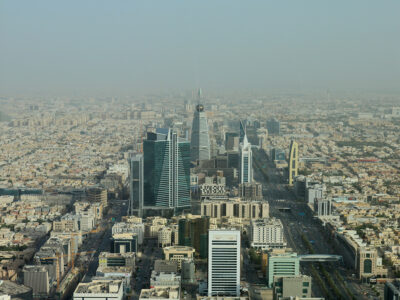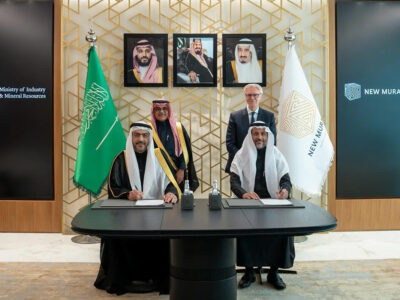How is the construction sector faring in Iraq and what opportunities
exist for firms? CW investigates.
For those working in the Middle East’s more modernised countries
such as the UAE or Qatar, Iraq may
seem like another world away. Used to designing and constructing large-scale and
innovative projects in a stable climate where the biggest issues include winning
work and getting paid for work done, it’s not hard to see why the prospect of carrying
out the same tasks in an area that was so recently a war zone may be unattractive.
But despite the perceived, and in some areas very real, risks
to personnel, many firms are seeking contracts in Iraq. In a period where the amount of
new work on offer in most countries worldwide is significantly reduced, there are
many lucrative and varied construction projects now available in Iraq.
The country’s gross domestic product of about $12 billion is
expected to double by 2014. And changes in regulations, such as the law passed in
November 2009 that allows foreigners to own land for housing, have opened up construction
opportunities, with the key potential of foreign investment now possible.
In addition, security and safety within much of the country also
appears to have improved, with the incidence of violence reportedly dropping greatly
since 2007 and the rebuilding of the major infrastructure is being prioritised.
So what opportunities exist and what work is underway?
Changed economies
Any doubts over the huge potential for Iraq’s construction
sector should be allayed by two major industry exhibitions that were held over the
past two months.
The Erbil International Fair was held on 18-21 October and featured
exhibitors from several sectors that are aiming to do business in Kurdistan and
Iraq.
Organisers highlighted the government investment plans for the country and opportunities
for international firms.
Prior to this, in late September the construction fair Project
Iraq
was held. The sixth exclusive construction show to be held in Erbil
in five years, the international fair for building equipment and electrical appliances
for the construction industry had around 300 exhibiting companies from
23 countries.
“With some $25 billion in housing projects, $8 billion in transportation
and $5.5 billion in water and sewage, the Iraqi government is focusing primarily
on reconstruction and rehabilitation,” stressed Fady Darwish, general manager of
Project Iraq organiser IFP Iraq. “Several new cement plants are being either revamped
or erected to satisfy a growing need and major international players are now present.
Iraq
consumes around 15 million tons of cement yearly, with the Iraqi ministry being
the largest consumer,” he added.
Erbil itself is one area that
is offering serious potential to foreign businesses. The capital of Kurdistan, it is a secure and stable region that acts as the
northern gateway to the country and is often called ‘The Other Iraq’. Its investment
law is cited as one of the most investor-friendly in the region and it has a booming
real estate industry.
Another positive sign for potential investors was the announcement
by The World Bank in mid-October that it will insure an investment in Iraq by the Turkish
Karo Dis Ticaret ve Sanayi. The first time such a guarantee has been given, this
has been taken as a sign that small, private firms are now willing to invest in
the country and provides the chance for firms to invest with a certain level of
security.
The $5 million guarantee will insure the firm’s investment in
a polyethylene terephthalate (PET) plant 17km south-east of Baghdad against expropriation; war and civil disturbance;
and currency risks, assures the bank’s political risk insurance arm, the Multilateral
Investment Guarantee Agency (MIGA). Established in 1988, MIGA promotes foreign direct
investment in developing countries by guaranteeing investments through political
risk insurance.
“It is a nice demonstration that you can do business in Iraq,
even with a security situation which is of concern to everyone and an environment
that is not yet conducive to large projects,” commented MIGA chief operations officer
James Bond. “What you’re beginning to see, even though things are taking perhaps
longer than we all would’ve liked to get the larger complex projects moved forward,
is private investment of a smaller scale,” he added.
Contracts underway
A number of high-profile, large-scale projects are underway in
the country, with several projects announced over the past few months. From the
early days of reconstruction where basic infrastructure such as roads and power
plants were a primary focus, the projects underway have become increasingly diverse
and combine to form a list that would not be out of place in many major cities,
with hotels, housing and irrigation among those included.
The major hotel management company Rotana took its first step
into the country in December 2008, signing an agreement with Summit Hotels for a
five-star property in Baghdad’s
Green Zone. Dewan Architects and Engineers won the design contract for the project,
which will include 300 bedrooms, a ballroom, plus a
conference centre.
The 35,000m2 project is currently under construction and is scheduled
to complete in 2012. Aimed at both business travellers and tourists, the hotel is
intended to become a landmark development for the country. “When completed the Rotana
will become one of the pilot buildings in post-war Baghdad – a city which is recovering from years
of destruction,” predicted Dewan executive director Ammar Al Assam.
The Rotana Baghdad is one of a number of prestigious projects
being undertaken in the city by Dewan, the firm having reopened its Iraq office in 2008
after the previously high levels of violence subsided. It is also undertaking the
Bab Al Muraq Hotel and mall complex and the redevelopment of the area surrounding
the Holy Shrines in Al Kadhimiya, which will include the restoration of historic
buildings as well as new buildings and utilities services.
Competition for the latter project demonstrated the huge interest
in construction work in Iraq,
with Dewan being chosen from a shortlist of ten international and Iraqi firms bidding
for the contract. The design process for the multi-billion dollar project is expected
to take five years, with construction expected to continue for
10-20 years.
“The Iraq
market offers huge potential,” stressed Al Assam. “There is good potential in Basra, Najaf and Sadr City,”
he added.
Moves by international firms into the market are also underway
in the housing sector. In mid-October, Lebanese construction firm Home International
Group won two contracts for the construction of more than 1,000 flats in the southern
Province of Missan, one of the most impoverished Iraqi
provinces. Each contract is worth around $80 million (79 billion dinars).
The overall interest of international firms for available contracts
in the housing sector led to the doubling of a target to build 500,000 homes. The
government now aims to build one million new homes within three years, with a further
million needed by 2015 to meet the shortage caused by war and sanctions. Construction
projects for the one million properties have been estimated to have an overall value
of $50 billion.
The government has estimated that 85% of home building will be
carried out by the private sector and foreign investments. Contracts have already
been awarded to firms including the UAE-based Al Maabar and Bonayan International
as well as firms from countries as diverse as the USA,
Turkey, Germany and New Zealand.
Iraq’s
National Investment Commission chairman Sami Al Araji explained: “When we saw the
huge interest by giant firms…this made us seize the opportunity instead of 500,000
to reach for one million.” More than 100 firms from countries including USA, UAE, China,
Turkey and Canada have reportedly
shown interest in the projects. Canadian Traugott Building Contractors are among
those that have been named as interested. “When we reach the stage of understanding
with any company, we will sign a contract with it immediately,” Al Araji announced
earlier this year.
Much of the interest follows the setting up by the government
of favourable terms to lure construction companies.
“We will bring the land and the buyer, and we will participate
in funding the project,” explained Al Araji. “They will not risk any money, they
will finish the work and they will sell [the home] to a company that we will establish,”
Al Araji said.
In the infrastructure sector preparations have begun for a 128km-long
transportation canal that will run from northern to southern Basra. The concrete-layered transportation canal
will have a discharge capacity
of 30m3/s.
“The total cost of the project will be around $299 million [350
billion Iraqi dinars],” he Iraqi Water Resources Ministry said in a statement.
A further plan is underway to build nine new quays in Basra’s Umm Qasr port to cope
with the increased activity in the country. The Iraq Ports Company has confirmed
that Umm Qasr will be refurbished to improve navigational depths to allow different
cargo ships entry. There are currently 21 quays in the port.
Yet more firms are actively seeking work within the country,
among them the USA-based Flatter & Associates. The firm provides international
programme management services and has been involved in the rebuilding work for three
years. In October 2010 it undertook a trade mission to the country in an effort
to increase its business deals in Iraq. Its current focus is on infrastructure,
as well as a port rehabilitation project and railway reconstruction work.
And while concerns remain from foreign investors regarding potential
corruption, plus the difficulties of operating in a country where the regulatory,
commercial and legal framework are in their infancy, the risks of working within
Iraq do appear to have significantly reduced. The number and type of projects on
offer to construction firms is set to increase hugely, making it a country that
has got to be considered by firms seeking to expand their business operations in
the region.





